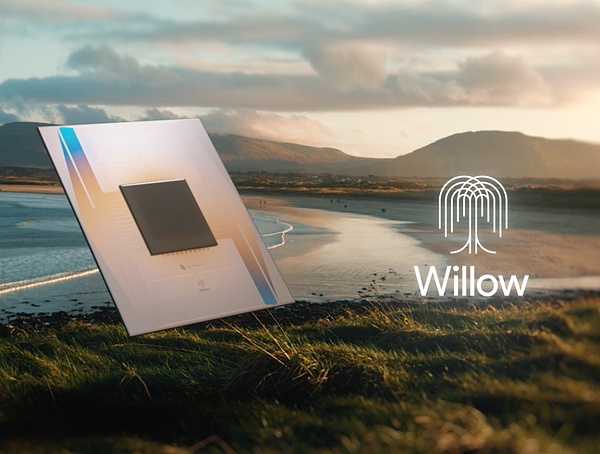Source: Quantum Number
According to TechCrunch, Google says its new quantum chip shows the existence of multiple universes. What's going on? Let's continue reading.
Google released its latest and greatest quantum computing chip "Willow" on Monday. Google's claims about the chip's speed and reliability are newsworthy in themselves, but what really caught the attention of the tech world was a more exaggerated statement in Google's blog post about the chip.
Hartmut Nevin, founder of Google's quantum artificial intelligence, wrote in the blog post that the chip is so fast that it must be computing power borrowed from other universes.
Therefore, the performance of the chip shows that parallel universes exist and "we live in a multiverse."
Here is the original article:
Willow's performance on this benchmark is astonishing: It completed a calculation in less than five minutes that would take one of today's fastest supercomputers 1025, or 10 to the 10th power, years to complete. In writing, that's 10,000,000,000,000,000,000,000,000,000 (1 followed by 25 zeros) years. This astonishing number exceeds the known timescales in physics and greatly exceeds the age of the universe. This proves that quantum computing occurs in many parallel universes, consistent with the idea that we live in a multiverse, a multiverse first predicted by David Deutsch.

Some were skeptical of this claim about the nature of reality, but surprisingly, others on the internet who claim to know about these things thought Nevin's conclusions made perfect sense. The multiverse, while the stuff of science fiction, is also an area that the founders of quantum physics studied seriously.
Sceptics, however, point out that the performance Google claims is based on a benchmark that Google itself created a few years ago to measure quantum performance. That alone doesn't prove that parallel versions of you aren't running in other universes, only that the underlying measurement standard is where it comes from.
Unlike traditional digital computers, which calculate based on whether bits are 0 or 1 (on or off), quantum computers rely on extremely tiny quantum bits. These qubits can be on or off or both (and everything in between), and they can also exploit quantum entanglement — a mysterious connection between two or more particles at the tiniest level of the universe, where their states are linked, no matter how far apart they are.
Quantum computers use this quantum mechanics to calculate highly complex problems that are currently intractable for classical computers.
The problem is that the more qubits you use in a computer, the more chances there are for errors. So it's unclear whether quantum computers will be reliable and powerful enough to live up to the hype. Google's mission with Willow was to reduce those errors, and Nevin says it has achieved that goal?
 JinseFinance
JinseFinance





